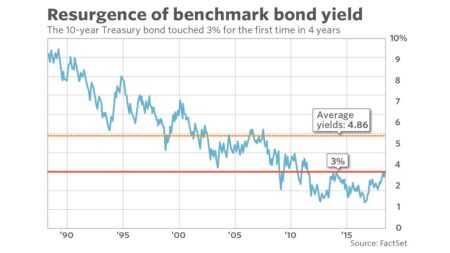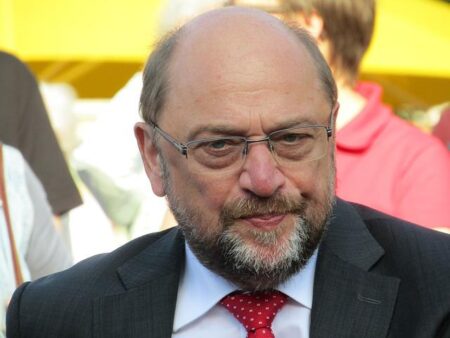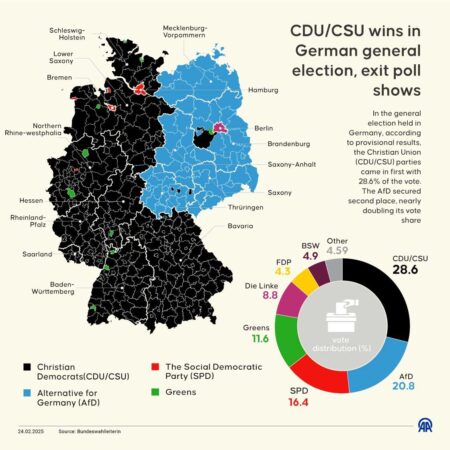Thailand is urging Germany to reassess its policy regarding submarine exports amid concerns that stringent regulations could jeopardize a significant deal with China. The request highlights Thailand’s strategic defense interests in the region.
Browsing: Germany
Germany’s recent spending plans have sparked concerns in global markets, leading to a decline in the 10-year Treasury note and the dollar. Analysts fear increased fiscal stimulus in Europe could draw investment away from U.S. assets, heightening volatility.
Germany is rethinking its fiscal constraints to bolster European defense capabilities, signaling a shift in its long-standing budgetary policies. This move aims to enhance military readiness and strengthen NATO partnerships amid rising geopolitical tensions.
Tesla’s sales in Germany plummeted 76% amid Elon Musk’s controversial political campaigning efforts. The sharp decline raises questions about the impact of Musk’s distractions on the automaker’s performance in key European markets.
The U.S. Consulate General in Frankfurt issued a security alert on March 3, 2025, advising American citizens to remain vigilant due to potential threats in the region. Travelers are encouraged to stay informed and take necessary precautions.
Germany is reassessing its diplomatic relationship with the United States following a recent clash between Ukrainian President Zelenskyy and former President Trump. The tensions highlight the complexities of international alliances as Europe navigates geopolitical challenges.
Amidst economic uncertainties, Germany’s Finance Minister Christian Merz has initiated a fiscal awakening aimed at revitalizing the nation’s economy. His strategic policies may steer Germany back on track, fostering growth and stability in the Eurozone.
German conservatives are increasingly aligning with far-right elements, prompting NGOs to voice concerns over a potential crackdown on civil society. Activists warn that this shift threatens democratic values and undermines civic engagement in the country.
As Germany’s political landscape shifts rightward, experts from the Atlantic Council analyze the implications of the recent election results. They delve into how this trend could reshape Germany‚Äôs domestic policies and its role in the European Union.
In a tragic incident in Mannheim, Germany, a driver rammed a car into a crowd, resulting in the deaths of two people and injuring 11 others. Authorities are investigating the motives behind the attack, which has left the community in shock.
Germany’s upcoming election promises to significantly influence Europe’s stance toward a more assertive Trump administration. As voters head to the polls on Sunday, the future of key policies on transatlantic relations and global cooperation hangs in the balance.
A tragic incident in Mannheim, Germany, has left two people dead and multiple others injured following a car ramming attack. Authorities are investigating the motive behind the attack, which has shocked the local community and raised security concerns.
Germany’s far-right party, AfD, has doubled its vote share in recent elections, signaling a significant shift in the country’s political landscape. This surge raises concerns about the influence of extremism and poses challenges for traditional parties in maintaining stability.
Secretary of Defense Pete Hegseth is set to embark on an official trip to Germany, Belgium, and Poland. The visit aims to strengthen military partnerships and discuss ongoing security challenges in Europe, underscoring the U.S. commitment to NATO allies.
Germany’s next leader faces pressing global challenges, unlike previous administrations that focused inward. As geopolitical tensions rise and the EU’s stability is tested, proactive engagement on the world stage becomes imperative for Germany’s future.
In the wake of Germany’s recent elections, the CDU/CSU and SPD are set to commence preliminary talks aimed at forming a potential coalition government. These discussions mark a crucial step in shaping the country’s political landscape following a tightly contested vote.
The recent German election has stirred political dynamics, revealing key trends: increased voter fragmentation, the rise of green policies, diminished support for traditional parties, a focus on climate action, and the enduring power of coalition governance.
Germany‚Äôs Autobahn, often celebrated for its lack of speed limits, is a driving enthusiast’s dream. However, it may be overrated. Traffic jams, varying speed zones, and strict regulations can hinder the experience, revealing a more complex reality behind the speed legend.
Germany’s Friedrich Merz is engaged in challenging negotiations aimed at increasing the nation’s defense budget. As international security concerns rise, the discussions reflect the balancing act between fiscal restraint and military readiness.
Following his election victory, Friedrich Merz faces the challenge of uniting Germany’s fractured political landscape while asserting strong leadership in Europe. Analysts at Chatham House examine whether he can navigate these demanding responsibilities effectively.




















